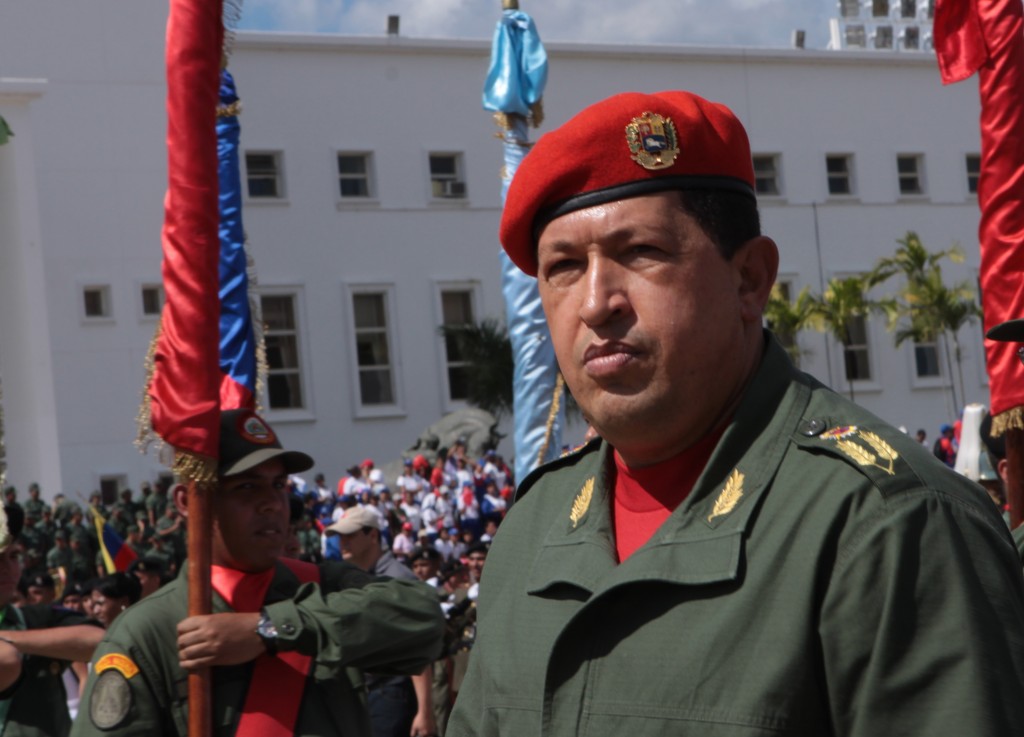
EspañolSince reaching power in 1999, Chavismo has traditionally ruled Venezuela alongside the army as its main political ally. Its founding father, the late President Hugo Chávez, was a lieutenant colonel who jumped into the political scene after leading a failed military coup d’état in February 1992.
In the current administration, army officers head nine of the most important ministries, not to mention those at the helm of other state institutions. Several more are either governors, mayors, or national congressmen. The outgoing National Assembly speaker and second most powerful Chavista official, Diosdado Cabello, is an army lieutenant.
That is why President Nicolás Maduro’s announcement on December 12 that he would remove all army officers fulfilling a role in public administration came as a surprise. Given the tight-knit relations between the ruling United Socialist Party of Venezuela (PSUV) and the military, Maduro, a civilian, won’t have any easy choices.
Aside from the Defense Ministry, the executive’s agencies led by army officers are the following:
- Ministry of Interior and Justice: Gustavo González López.
- Ministry of the Presidential Office: Jesús Salazar.
- Ministry of Housing: Manuel Quevedo.
- Ministry of Finance: Rodolfo Marco Torres.
- Ministry of Energy: Luis Motta Domínguez.
- Ministry of Industries and Commerce: José David Cabello.
- Ministry of Aquatic and Air Transport: Giuseppe Yoffreda.
- Food Ministry: Carlos Osorio.
The questions on everyone’s lips are who will go and why the president is taking such a bold decision now. Maduro hasn’t provided any answers.
Rocío San Miguel, president of Citizen Control for Security and Defense (Control Ciudadano), an NGO dedicated to citizen oversight of military matters, believes the move seeks to hamper accountability.
“It may be that Maduro’s decision to roll back the Venezuelan army seeks to hide evidence from the new National Assembly [controlled by the opposition] that takes office on January 6. And considering all the corruption over the past 16 years, he may also want to conceal the officers’ wrongdoings,” she told the PanAm Post.
San Miguel explained that these top officials are the most loyal to Chavismo, and the ones who really control the country. “The men who return to their military bases could possibly do it to monitor what happens inside the Venezuelan army more closely, to politicize the ranks, and to erase any trace of their time in the public administration. Obviously, this wasn’t Maduro’s decision; it was probably the result of a post-electoral evaluation.”
Burying Chávez’s Legacy
The army has amassed so much influence within Chavismo that the constitution introduced in 1999 allowed officers to vote, just like civilians. As soon as Hugo Chávez took power, he enacted a series of measures giving the army a greater role in political affairs. This was part of the military-civilian alliance he always envisioned.
The Chávez government’s first corruption scandals emerged precisely from the military’s involvement in selling food and commanding public works. For instance, Plan Bolívar 2000 funneled state funds to the army, generating criticism of Jorge Luis García Carneiro, who is now the governor of Vargas State and was a participant in the program.
When Maduro made the announcement, he said: “Let’s recover the spirit of Plan Bolívar 2000. Before dawn on January 1, I want a new plan to revitalize and relaunch the military-civilian alliance so that it can meet its maximum potential.”
Venezuelan lawyer Thays Peñalver told the PanAm Post that “the military have had zero oversight since Chávez came to power. They have handled public affairs as they see fit, being accountable to no one, because citizens have never demanded accountability. Chávez was a never a democrat, and his rise to power was a death sentence for Venezuelan democracy.”
Peñalver expressed concern over where the outgoing officers would end up: “Maduro didn’t say whom he would get rid of; he only said that he’d send them back to their bases. That’s where they should have been all along, not selling chicken. Democratic countries don’t have army officers running banks and TV and radio stations, much less ministries.”
However, the army was not always on the ruling party’s side. The 48-hour coup led by Venezuela’s businessmen in 2002 had the military’s support.
[adrotate group=”8″]
After the now-forgotten Plan Bolívar 2000, corruption scandals involving army officers have been a constant fixture of Venezuelan politics. Perhaps the biggest case of sleaze, and one which merits deep investigation, is the embezzlement of taxpayer money through Cadivi, the agency that manages the currency controls enacted in 2003.
General Manuel Barroso presided over Cadivi while General Félix Osorio sat on the agency’s board. According to an exposé by local newspaper El Nacional, Cadivi gave over US$23 million to firms in which both men were shareholders in 2012.
“Even though they are no longer in their posts, they should be held accountable. [The National Assembly] can call [sitting] ministers to testify, but they should also have to provide answers. During all this time, the provision of food has been in the military’s hands, and Venezuela is on the verge of starvation due to shortages. Even though they return to their barracks, they should have to justify their actions,” Peñalver said.
She also stressed the difference between the officers who serve in the army to defend Venezuela’s borders, combat mafias, drug trafficking, and terrorism, and those who have jumped into the civilian world in order to become gun-wielding politicos.
“Aside from concentrating all the power and all the money, they wield the national symbols. We should start asking ourselves whether they are real officers or just men in uniforms seeking power in politics,” she concluded.
 Versión Español
Versión Español












